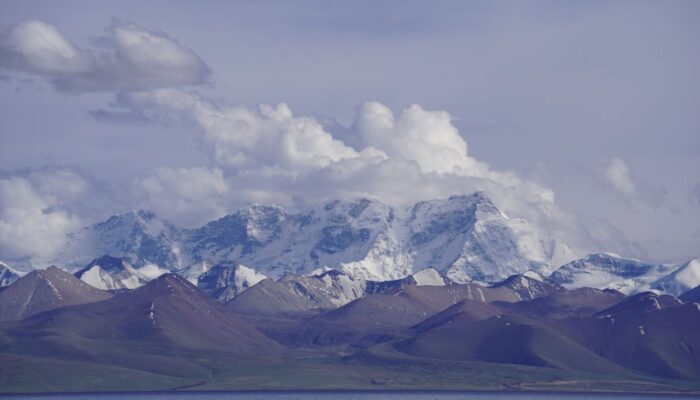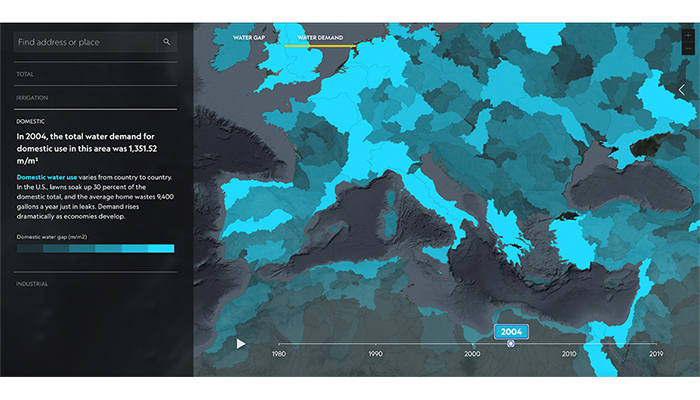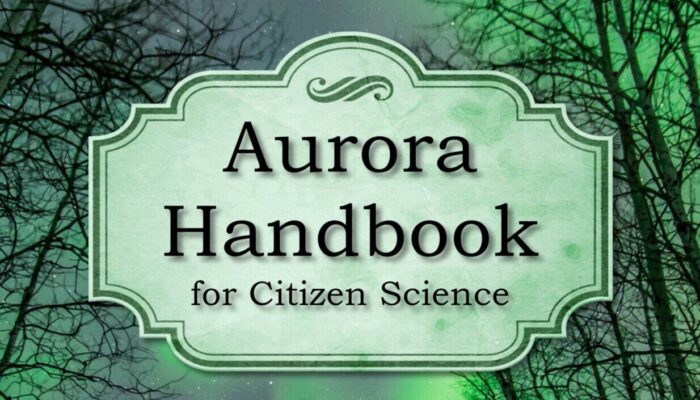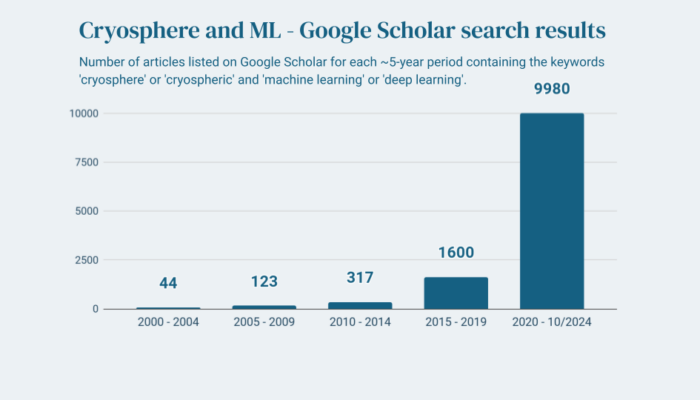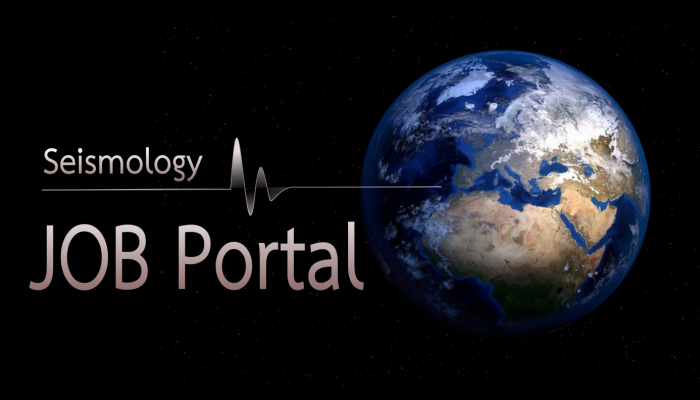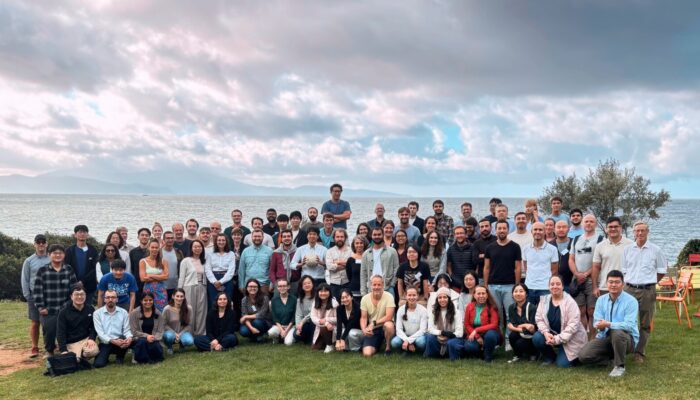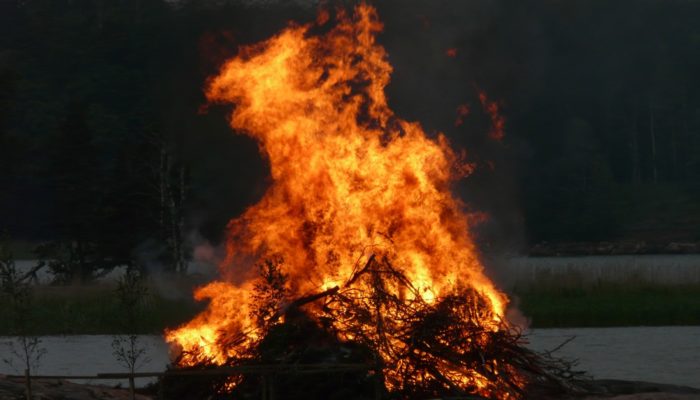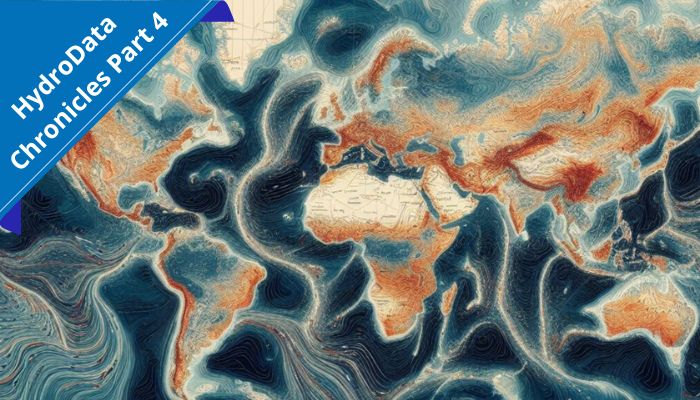International Scientific Continental Drilling Program (ICDP) campaigns may lead scientists from all over the world to most exciting places that are often of extraordinary beauty and remoteness. All these attributes certainly apply to Lake Nam Co situated at an altitude of 4700 m above sea level on the Tibetan Plateau in the Himalayas. Today this area supplies one third of the humankind with fresh ...[Read More]
If you didn't find what you was looking for try searching again.
Hydrological Sciences
Mapping the Future of Freshwater: An Interview with Niko Wanders on the World Water Map Project
Back in 2022, two hydrologists and water resources specialists from University of Utrecht launched the World Water Map in collaboration with the National Geographic Society and ESRI. Based on the outputs of their global hydrological model PCR-GLOBWB, the team of Marc Bierkens and Niko Wanders map global water resources and identify the regions most at risk of water scarcity. The maps combine stat ...[Read More]
Geodynamics
Dirty Poppy and the Research Tournament of Arcane Mysteries.
In this week’s post, Dr. Katherine Villavicencio (University G. d’Annunzio, Italy) looks into the flaws of the academic system that enables abusive supervisors to hold excessive power. In the form of a wizardly tale, she sheds light on the negative experiences of students subjected to the oppressive control of this kind of supervisors. In an alternate universe, the magical world is governed by ac ...[Read More]
Solar-Terrestrial Sciences
Newly released: Aurora Handbook and Field Guide for citizen science studies in view of the upcoming SolarMaX campaign
Given the recent surge in solar and geomagnetic activity, spectacular auroral displays have been visible down to the mid-latitudes several times since the beginning of 2024. But it is not always so easy to know when to go out, where to look, and how to take good pictures of the aurora. And what if the observations collected by seasoned and first-time aurora chasers could help in advancing the scie ...[Read More]
Cryospheric Sciences
Did you know? Machine learning can help us understand the cryosphere!
Recently, Machine Learning (ML) has emerged as a powerful tool within cryospheric sciences, offering innovative and effective solutions for observing, modelling and understanding the frozen regions of the Earth. From learning snowfall patterns and predicting avalanche dynamics to speeding up the process of modelling ice sheets, ML has transformed cryospheric sciences and bears many o ...[Read More]
Hydrological Sciences
How to Promote Your EGU25 Session
Since October 23rd, abstract submissions for EGU25 are officially open! For session conveners, this is a critical phase and promoting your session is crucial. If you are co-convening a “traditional” session on a large topic that is run every year you might be inundated with abstracts already now or shortly before the deadline. However, many smaller sessions on more niche topics receive far fewer ...[Read More]
Seismology
Seismology Job Portal
On this page, we regularly update open positions in Seismology for early career scientists. Do you have a job on offer? Contact us at ecs-sm@egu.eu Please, note that other available research positions are displayed on the EGU Jobs Portal. Latest open positions: 1. Machine Learning Seismology Postdoc Institute: Lawrence Livermore National Laboratory (LLNL), USA Salary: $113,760 annually Starting: – ...[Read More]
Geodynamics
4th Cargèse School on Earthquakes: Nucleation, Triggering, Rupture, and Relationships to Aseismic Processes
How do earthquakes nucleate? How do they arrest? Can we predict or control them? How do fault zone structure and rheology influence rupture? What do earthquakes in the lab tell us? How does fluid injection modulate seismicity? The Institut des Etudes Scientifiques de Cargèse (IESC) premise in Corsica, France was abuzz with discussions about these and many other related questions this October. The ...[Read More]
Geodesy
EGU Campfire Geodesy – Share Your Research – Ninth Edition
We are excited to announce the 9th edition of Geodesy Campfire – Share Your Research in November. The Geodesy EGU Campfire Events “Share Your Research” give (early career) researchers the chance to talk about their work.We have two exciting talks by our guest speakers Roland Hohensinn and Bjarke Nilsson. Below you can find the details of the topics awaiting us. We will have time to network after t ...[Read More]
Hydrological Sciences
HydroData Chronicles: Celebrating 35 Years of Global Precipitation Monitoring with GPCC
Welcome back to the HydroData Chronicles, where we continue to explore the wealth of hydrological data shaping climate research worldwide. In this installment, we celebrate an incredible milestone — 35 years of global gridded precipitation data from the Global Precipitation Climatology Centre (GPCC). The Origins of GPCC Founded by the Deutscher Wetterdienst under the auspices of the World Meteorol ...[Read More]

